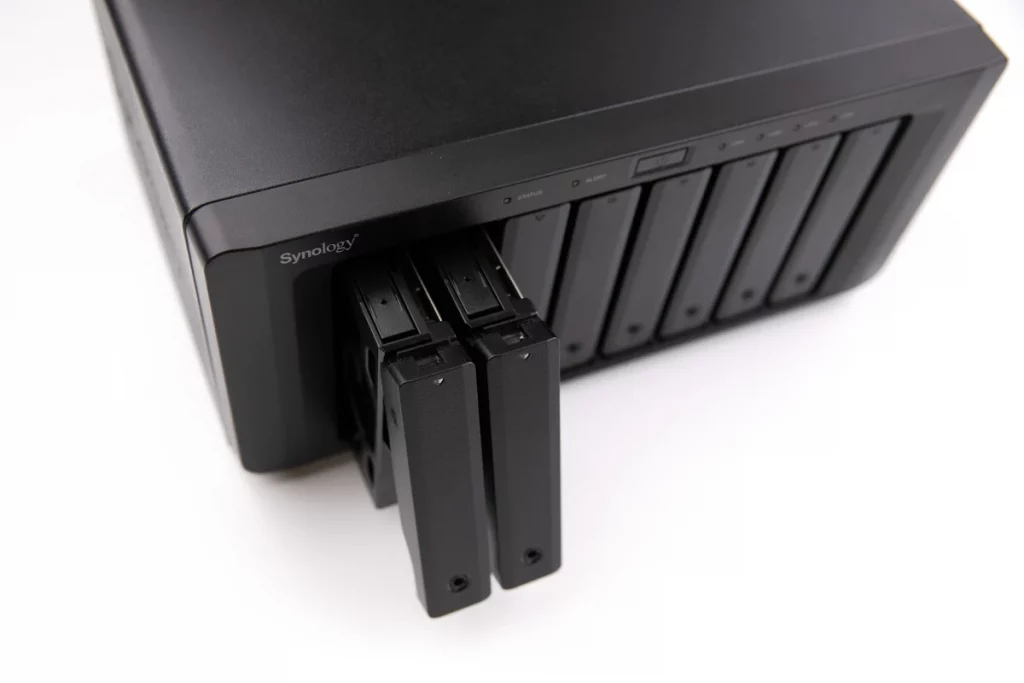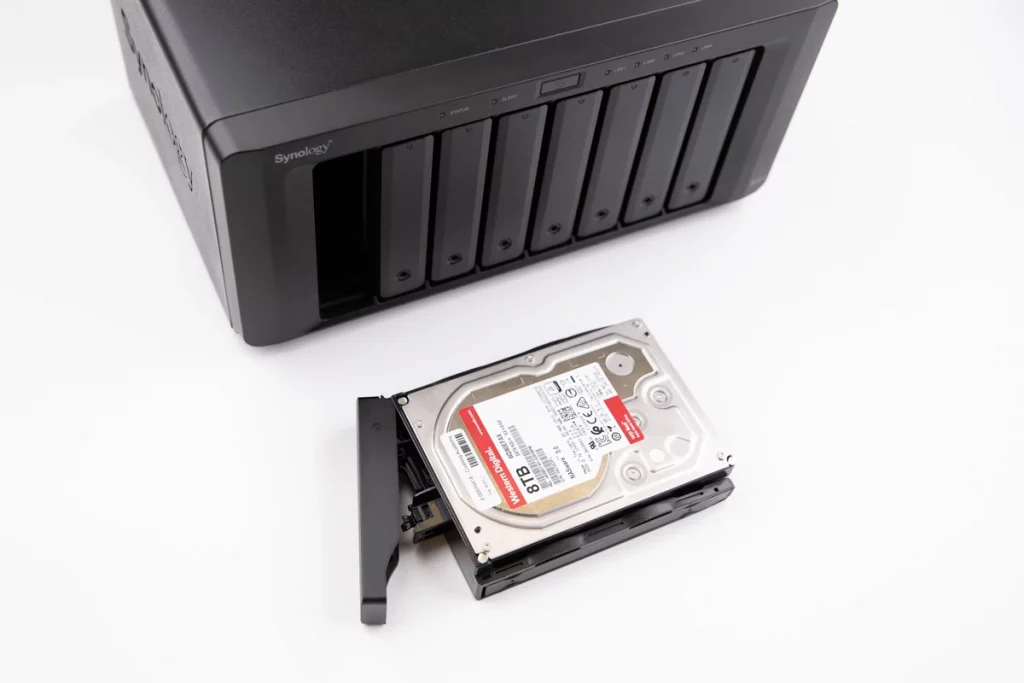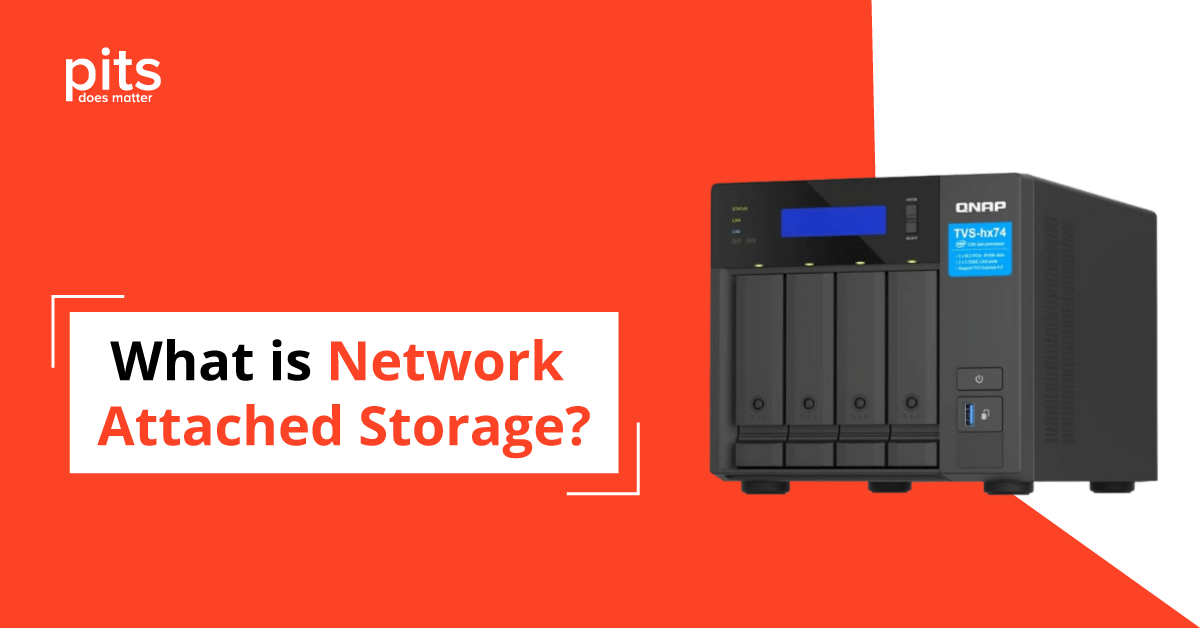NAS is a storage device that connects to a network and allows multiple clients to access data from a centralized location. These devices usually come in the form of a dedicated appliance designed to provide high-performance file sharing and data storage.
A Network-Attached Storage is essentially a file server offering file-level storage and data access over a network. NAS devices can be configured with different storage capacities depending on the organization’s requirements.
How Does NAS Storage Work?
NAS devices connect to a network and provide file-level storage and access to multiple clients. The device is connected to a network using an Ethernet cable and is assigned its own IP address. The NAS device uses its own operating system and file system to manage data storage.
Once the NAS device is connected to the network, it can be accessed by multiple clients. The clients can access the data stored on the NAS device using a network file-sharing protocol such as SMB (Server Message Block) or NFS (Network File System). Clients can access the data stored on the NAS as if it were stored locally on their computers.
The NAS device also provides a range of features, such as user authentication and file-sharing permissions. These features allow organizations to manage and protect their data effectively.
Where is NAS Data Storage Used?
NAS devices are used in various settings, including homes, small businesses, and large enterprises. Here are some of the frequent use cases of NAS devices:
- Home Media Storage. NAS devices are commonly used in homes to store media such as photos, videos, and music. NAS allows family members to access the media from any device connected to the network.

- Small Business File Sharing. Small businesses commonly use NAS devices to provide centralized file storage solutions. This allows employees to access files from any device connected to the network, improving collaboration and productivity.
- Video Surveillance Storage. NAS storage is commonly used in video surveillance systems to store and manage video footage. This allows organizations to manage and access video footage from a centralized location.
- Data Backup. NAS devices are commonly used for data backup. Organizations can use a NAS device to store backups of critical data and restore data in the event of a disaster.
- Virtualization. NAS can be used in virtualized environments to provide shared storage for virtual machines. This allows multiple virtual machines to access the same storage resources.
Data Loss on Network-Attached Storage (NAS)
Hardware Failure
Hardware failure is one of the most common causes of data loss on NAS storage. NAS devices are prone to failures of the hard drives or power supply, which can result in data loss. Hard disk drive failures can occur for various reasons, such as wear and tear, manufacturing defects, or physical damage. Power supply failure can also lead to data loss as it can cause the NAS device to shut down abruptly, leading to corruption.
Human Error
Human error is another common cause of data loss on NAS storage. Users may accidentally delete or overwrite important files or format the wrong disk. This can result in the loss of critical data. Additionally, users may not be aware of the proper backup procedures, which can result in data loss.
Cyberattacks
Cyberattacks such as ransomware, malware, and viruses can infect NAS storage and cause data loss. Cybercriminals can gain unauthorized access to NAS storage and encrypt, modify, or delete data. Additionally, cybercriminals can use NAS storage to launch attacks on other devices on the network.
Natural Disasters
Natural disasters such as floods, fires, earthquakes, and hurricanes can cause physical damage to NAS storage and result in data loss. These disasters can damage the NAS, the hard drives, or the physical location where the device is kept.
Software and Firmware Issues
Software and firmware issues can also lead to data loss on NAS storage.

This can include bugs or glitches in the NAS device’s operating system, firmware updates that cause compatibility issues, or corrupted system files. These issues can cause the NAS to crash or become unresponsive.
Power Outages
Power outages are another cause of data loss on NAS storage. Abrupt power loss can cause the NAS device to shut down without warning, leading to corruption or loss.
Lack of Maintenance
Lack of maintenance will result in data loss on NAS storage. Over time, hard drives can become corrupted, and the NAS device can become slow or unresponsive. Regular maintenance, such as updating the firmware, checking the health of the hard drives, and backing up data, can prevent data loss.
When facing a data loss on a NAS device, it is critical to entrust your case to professionals. You may worsen the situation by trying to solve the problem yourself, leading to irreversible data loss. By requesting help from a professional recovery service provider, like PITS, you increase your chances for successful data recovery.
NAS Data Recovery with PITS
PITS Global Data Recovery Services is a trusted provider of data recovery solutions specializing in NAS devices. When you come to us with a failed NAS device, our team of experienced technicians will evaluate the problem to determine the extent of the damage and provide you with a report on the recoverable data. If the issue is physical, we will perform repairs on the damaged components in our state-of-the-art cleanroom facility. If the problem is logical, we will use advanced methods to recover lost or corrupted data.
Once the data has been recovered, we will extract it from the NAS device and transfer it to a secure storage device. During the transfer process, we take extra precautions to ensure the data is not compromised.
We understand the significance of your data and the impact data loss can have on your business. That is why we are devoted to providing fast, reliable, and secure data recovery services for failed NAS devices.
At PITS Global Data Recovery Services, we prioritize your satisfaction and prioritize your data’s security throughout the recovery process. Contact our customer service team to get more information about our NAS data recovery services and how we can help recover your critical data.
